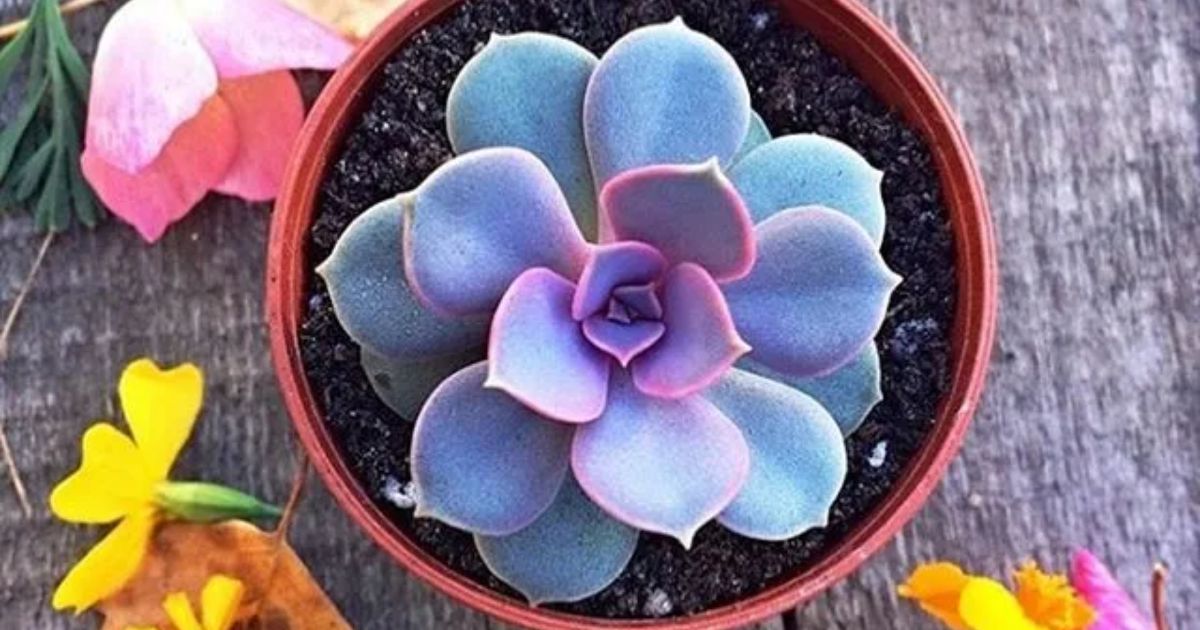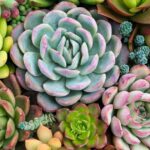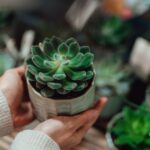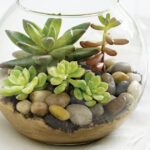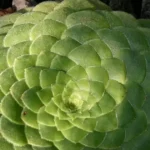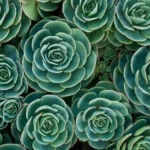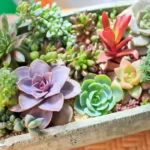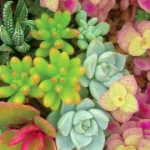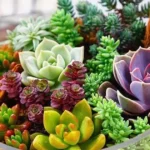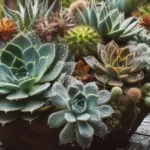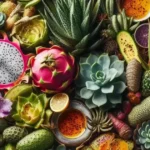Bearded dragons are reptiles that should not eat succulents. Succulents can be harmful to them due to their high water content and potential toxins. It’s best to provide a diet of insects and leafy greens for your bearded dragon to keep them healthy. Avoid offering succulents as part of their diet to prevent digestive issues.
Are you a proud bearded dragon owner, eager to ensure their well-being? If so, you must be wondering,Can bearded dragons eat succulents? Discover the vital answer and essential care tips in the following paragraphs, so you can keep your scaly friend happy and healthy. Don’t miss out, let’s dive into the world of responsible reptile nutrition.
Bearded dragons should not eat succulents as they can be harmful to their health. Succulents have high water content and may contain toxins that can be dangerous for these reptiles. It’s best to provide a diet of insects and leafy greens to keep your bearded dragon safe and healthy.
Understanding Bearded Dragons’ Diet
Before delving into the specifics of succulents, it’s crucial to understand the typical dietary requirements of bearded dragons. These reptiles are omnivores, which means they consume a mix of animal and plant matter. Their natural diet consists of insects like crickets, mealworms, and roaches, along with a variety of leafy greens and vegetables.
Animal Protein
Crickets, dubia roaches, mealworms, and silkworms are excellent sources of animal protein for bearded dragons. They should make up a significant portion of their diet, especially for young dragons.
Small rodents
Adult bearded dragons can occasionally consume small rodents like pinkie mice, but this should be a small part of their diet.
Leafy greens
Collard greens, mustard greens, dandelion greens, and kale (in moderation) are suitable choices for bearded dragons.
Fruit
Small amounts of fruits like strawberries, blueberries, and apples can be included as an occasional treat. Now, let’s address the question at hand: can bearded dragons eat succulents?
Can Bearded Dragons Eat Succulents?
Succulents are a unique group of plants known for their water-retaining properties. They are commonly found as houseplants and are known for their resilience. Some succulents are edible and safe for humans, but the situation is different when it comes to bearded dragons.
| Topic | Key Points |
| Understanding Bearded Dragons’ Diet | Bearded dragons are omnivores, needing a balance of animal protein, leafy greens, and vegetables. |
| Insects like crickets and leafy greens are staples in their diet. | |
| Can Bearded Dragons Eat Succulents? | Succulents have high water content and may contain toxic compounds. |
| Feeding succulents may lead to nutritional imbalance and digestive issues. | |
| Suitable Succulents (if Any) | Hens and Chicks and Prickly Pear Cactus may be offered occasionally, with caution. |
| Consult with a veterinarian before introducing new foods. | |
| Best Practices for Bearded Dragon Nutrition | Provide a varied diet, gut load insects, and dust them with calcium. |
| Offer fresh water, monitor their diet, and avoid wild-caught insects. | |
| Seek professional advice for specific dietary needs. | |
| Conclusion | While a few succulents may be safe in moderation, focus on balanced nutrition for a healthy bearded dragon. |
The Risks of Feeding Succulents to Bearded Dragons
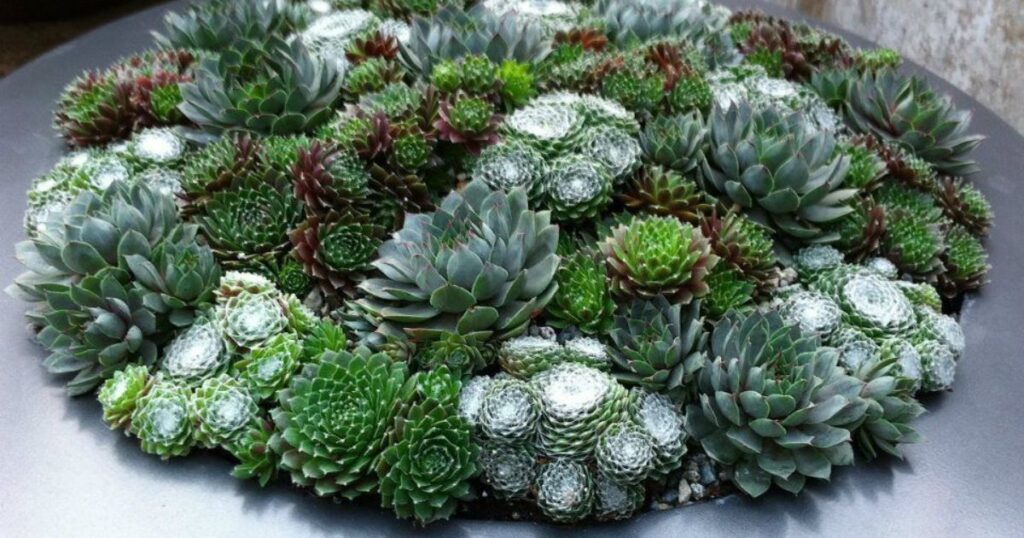
Succulents can pose various risks to your bearded dragon’s health. Here are some reasons why they should be avoided in your pet’s diet.
High Water Content
Succulents are primarily water-filled plants, which can lead to excessive water intake for bearded dragons. These reptiles are adapted to arid environments and require a diet that replicates their natural habitat, which is low in water content.
Toxic Compounds
Many succulent varieties contain compounds that can be harmful to bearded dragons. These compounds may lead to digestive issues, organ damage, or other health problems.
Nutritional Imbalance
Feeding your bearded dragon succulents can lead to a nutritional imbalance in their diet. They require a specific mix of proteins, vitamins, and minerals, which succulents cannot provide.
Given these risks, it is generally advisable to avoid feeding succulents to your bearded dragon. If you are determined to explore this option or have heard about specific succulents that may be safe, it’s essential to proceed with caution and gather all the necessary information.
Suitable Succulents for Bearded Dragons
While the majority of succulents are not suitable for bearded dragons, there are a few exceptions. Some succulents may be considered safe to feed in very limited quantities. However find yourself wondering, “why is my succulent wrinkly,” it is crucial to exercise extreme caution and consult with a veterinarian or reptile expert before introducing any new food into your bearded dragon’s diet.
Hens and Chicks (Sempervivum spp.)
Some bearded dragon owners have reported feeding small amounts of hens and chicks without adverse effects. However, this should be considered a rare treat rather than a staple in their diet.
Prickly Pear Cactus (Opuntia spp.)
Prickly pear cactus pads are another succulent that can be offered occasionally. Ensure they are free from spines, and offer them in moderation.
Remember, even if a succulent is considered safe, it should only be given as an occasional treat. It should never replace the staple diet of insects and leafy greens that bearded dragons require for proper nutrition.
Best Practices for Bearded Dragon Nutrition
Now that we’ve discussed the risks and limited exceptions regarding succulents, let’s focus on the best practices for maintaining a healthy diet for your bearded dragon.
Variety
Bearded dragons thrive on a diverse diet. Provide a variety of insects and greens to ensure they receive a broad spectrum of nutrients.
Gut Loading
If you’re feeding insects to your bearded dragon, consider gut loading them with nutritious foods before offering them to your pet. This enhances the nutritional content of the insects.
Dusting
Dust insects with calcium powder before feeding them to your bearded dragon. Calcium is essential for their bone health.
Supplements
Consult with a reptile veterinarian to determine if your bearded dragon requires any specific vitamin or mineral supplements to meet their nutritional needs.
Water
While succulents are off the menu, always provide fresh, clean water in a shallow dish for your bearded dragon. They may not drink often, but access to water is crucial.
Monitor Their Diet
Keep a watchful eye on your bearded dragon’s eating habits and overall health. If you notice any significant changes, consult a reptile veterinarian.
Avoid Feeding Wild Insects
Insects collected from the wild can introduce parasites and toxins to your bearded dragon. Stick to reputable sources for insects or consider breeding your own.
FAQ’s
What succulent plants are safe for bearded dragons?
Hens and Chicks (Sempervivum spp.) and Prickly Pear Cactus (Opuntia spp.) are considered safe succulent options for bearded dragons in limited quantities.
What real plants are safe for bearded dragons?
Safe plants for bearded dragons include hibiscus, dandelion, and edible varieties like collard greens and mustard greens.
What plants are poisonous to bearded dragons?
Many plants can be toxic to bearded dragons, including aloe vera, ivy, and daffodils. It’s crucial to research and ensure a safe environment for your pet.
Are there poisonous succulents?
Yes, there are poisonous succulents that can pose risks to humans and pets if ingested or handled without caution.
Conclusion
The question: Can bearded dragons eat succulents?should be met with caution and careful consideration. While a few succulents may be offered as an occasional treat, it’s generally best to avoid them in your bearded dragon’s diet. Focus on providing a balanced mix of insects, leafy greens, and other recommended foods to ensure their health and happiness.
Always consult with a veterinarian or reptile expert for specific dietary advice tailored to your bearded dragon’s needs. Remember that responsible pet ownership includes providing the best nutrition to keep your bearded dragon thriving. By adhering to these guidelines, you can enjoy the company of a healthy and content reptile companion for years to come.
